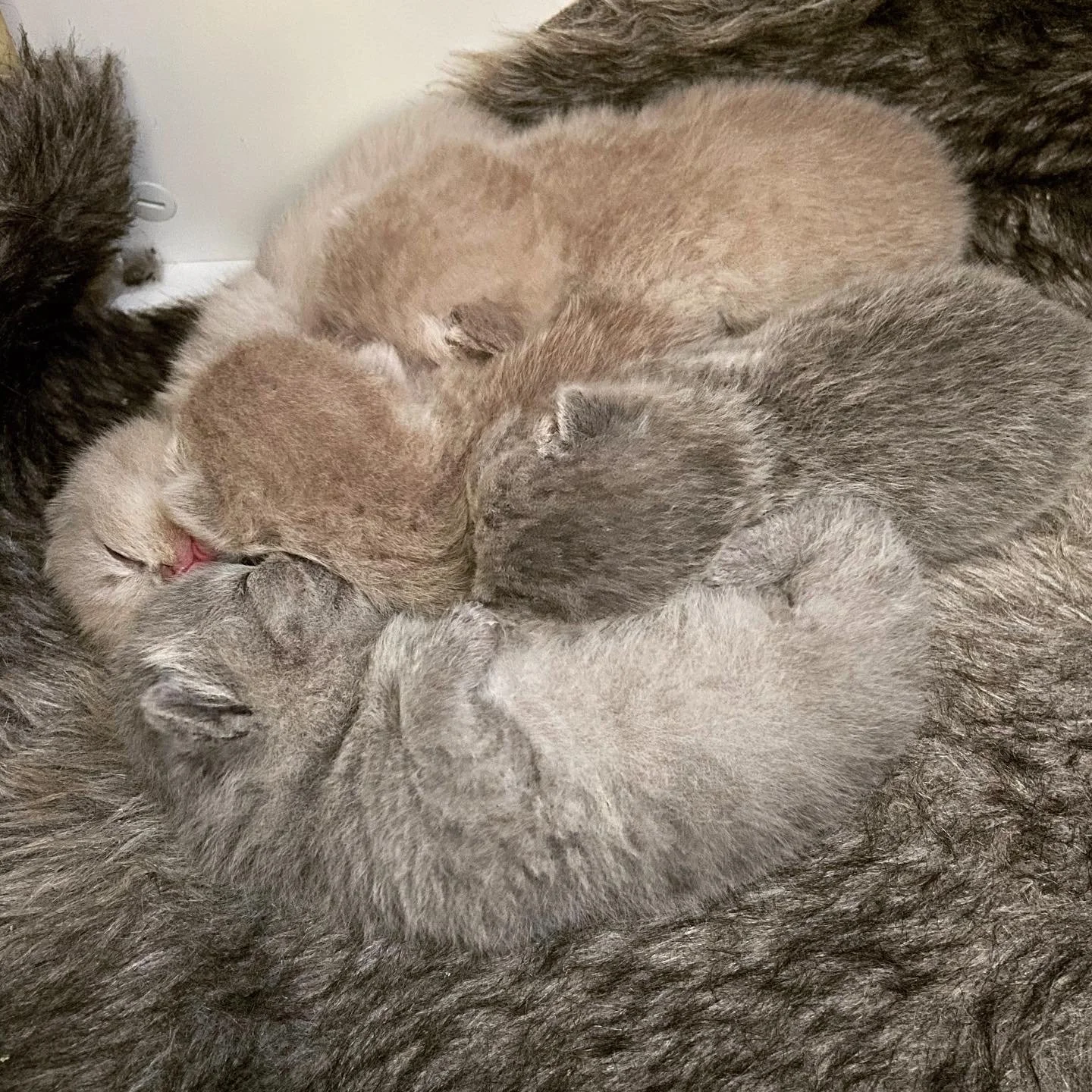If you're considering adding a British Shorthair to your family, you're in for a delightful experience! This charming breed, known for its plush coat and calm temperament, has captured the hearts of cat lovers worldwide. In this blog, we'll dive into key details about the British Shorthair cat breed, including grooming tips, temperament, health, and where to find British Shorthair kittens for sale.
British Shorthair Cat Breed Information
The British Shorthair is one of the oldest and most popular cat breeds in the world. Originating from the streets of Britain, these cats were initially known for their hunting skills. Over time, their striking appearance and sweet personality made them a favorite in homes and cat shows alike.
One of the British Shorthair's most defining features is its round face with large, expressive eyes that can range from copper to deep blue, depending on the coat color. Their coat is dense, short, and incredibly soft to the touch, coming in a variety of colors, with the "blue" or grey variant being the most well-known.
British Shorthair Temperament
British Shorthair cats are known for their calm and easy-going nature. They are affectionate without being overly clingy, making them perfect for families or individuals who want a companion without the constant need for attention. British Shorthairs enjoy being around their human companions but also appreciate their own space. Their gentle and quiet demeanor makes them a great choice for households with children or other pets.
While they are not overly active cats, British Shorthairs are playful in short bursts and enjoy interactive toys or a cozy perch by the window where they can watch the world outside.
British Shorthair Grooming Tips
Despite their thick, plush coat, British Shorthair cats are relatively low-maintenance when it comes to grooming. Their short fur does not mat easily, but regular brushing will help reduce shedding and keep their coat in top condition. A once-a-week grooming session with a soft brush is usually enough to remove loose hairs and keep your cat looking sleek.
During shedding seasons (spring and fall), it’s a good idea to increase the brushing frequency to avoid excessive hair around the house. Also, be sure to check their ears and trim their nails regularly.
British Shorthair Health and Care
British Shorthair cats are generally healthy and can live up to 15-20 years with proper care. However, like all breeds, they can be prone to specific health conditions. One common issue in British Shorthairs is obesity, as they tend to gain weight if not monitored. It’s essential to maintain a balanced diet and encourage some physical activity, even if it’s just a few minutes of play each day.
Another health concern for this breed is hypertrophic cardiomyopathy (HCM), a common heart condition in cats. Regular veterinary check-ups are important to ensure early detection and management of any health issues.
Where to Find British Shorthair Kittens for Sale
If you're looking to welcome a British Shorthair into your home, it's essential to find reputable breeders. Ethical breeders prioritize the health and well-being of their cats, ensuring they are properly socialized and free from genetic conditions. Always ask for health clearances and visit the breeder’s facilities if possible.
Once a year we have a litter of bsh kittens. follow us on instargram to get the latest news. If you would like to know more about us or the cats you can send us an email or fill in the contact form.
Conclusion
British Shorthair cats are a wonderful addition to any household, offering a perfect blend of affection, independence, and charm. Whether you're drawn to their signature round face, plush coat, or laid-back personality, this breed is sure to bring joy to your life. Remember to follow the grooming tips, monitor their health, and seek out reputable sources when looking for British Shorthair kittens for sale.
By understanding the unique traits of this breed, you'll be better prepared to provide a happy and healthy home for your new feline friend!
